Recent Blog Posts
Can I Evict a Tenant for Disorderly Conduct in Illinois?
 A comfortable and peaceful environment is essential to managing a residential property. A pleasant environment attracts tenants, helps keep them satisfied with the living space, and maintains harmony with neighbors. When a tenant disturbs the peace, however, it can ruin the environment for others, cause complaints, and even result in other tenants abandoning their leases.
A comfortable and peaceful environment is essential to managing a residential property. A pleasant environment attracts tenants, helps keep them satisfied with the living space, and maintains harmony with neighbors. When a tenant disturbs the peace, however, it can ruin the environment for others, cause complaints, and even result in other tenants abandoning their leases.
If you want to evict a tenant for disorderly conduct, it is important to first understand what that means and what legal steps you need to follow. Speak with an Illinois civil litigation attorney to learn your legal options and how to proceed with an eviction.
What Is Disorderly Conduct?
Disorderly conduct, also known as disturbing the peace, is a criminal offense in Illinois. When evicting a tenant for unruly behavior, check with your attorney if it falls under the category of disorderly conduct. Evicting someone for criminal activity can help keep the law on your side.
DuPage County Man Pleads Guilty to Felony Drug Possession
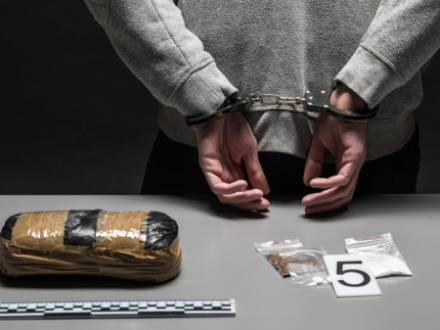 Recently, a 41-year-old DuPage County man pled guilty to Class X felony drug possession of methamphetamine, between 100 and 400 grams. The man was a passenger in a car that was pulled over during a traffic stop. During the traffic stop, police searched the vehicle and found a suitcase with 226 grams of methamphetamine and 16 grams of cocaine. Due to the volume of methamphetamine and the fact that the cocaine was in three separate packages, the man was initially charged with drug trafficking.
Recently, a 41-year-old DuPage County man pled guilty to Class X felony drug possession of methamphetamine, between 100 and 400 grams. The man was a passenger in a car that was pulled over during a traffic stop. During the traffic stop, police searched the vehicle and found a suitcase with 226 grams of methamphetamine and 16 grams of cocaine. Due to the volume of methamphetamine and the fact that the cocaine was in three separate packages, the man was initially charged with drug trafficking.
Trafficking charges were dropped during a plea agreement, and the sentence was eight years in the Illinois Department of Corrections for drug possession. Drug possession can be a misdemeanor or felony, depending on the volume of drugs in the possession of the defendant. Large volumes of drugs may trigger trafficking charges as well. If you have been charged with drug possession or drug trafficking, it is beneficial to speak to an experienced Naperville, IL, criminal defense lawyer from Appelman Law LLC.
What IL Landlords Can and Can Not Do When Screening Tenants
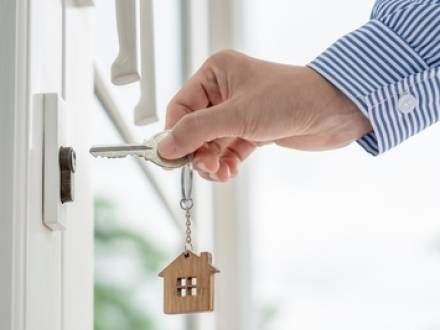 It can be difficult for landlords to keep up with the changing laws regarding best practices for screening tenant applicants and what is not allowed during the process. Screening prospective tenants is extremely important to ensure the selected tenants are reliable and responsible and to prevent tenant evictions.
It can be difficult for landlords to keep up with the changing laws regarding best practices for screening tenant applicants and what is not allowed during the process. Screening prospective tenants is extremely important to ensure the selected tenants are reliable and responsible and to prevent tenant evictions.
There is more involved in tenant screening than a simple background check. Tenant screening involves many legal factors that are designed to protect prospective tenants as well as landlords. A landlord must understand local ordinances and fair housing laws and keep up with and understand any recent legislative changes. Speaking to a Naperville, IL tenant eviction attorney from Appelman Law LLC can be beneficial whether you are a new landlord or a seasoned landlord.
What Is Involved in a Tenant Screening to Evaluate Prospective Renters?
There are both accepted practices and legal requirements when you are screening tenants. The accepted practices include:
Why Are Chicago Violent Crimes at a 5-Year High?
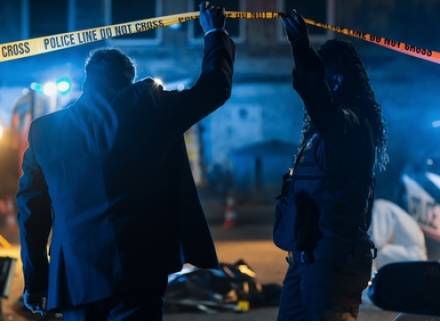 Despite city-wide efforts and millions of dollars spent by the city of Chicago to reduce crime and violence, recent data shows violent crime cases are at a five-year high. Violent crimes overall appear to have jumped by about 7.2 percent. Robberies are at the top of the list in the increase in violent crimes. On the other hand, homicide rates in the city (which saw a decline in the city in 2022 and fell again in 2023), are currently lower at this point in 2024 as compared to 2023. State Rep. John Cabello asserts rising violent crimes in Chicago are due to the SAFE-T Act.
Despite city-wide efforts and millions of dollars spent by the city of Chicago to reduce crime and violence, recent data shows violent crime cases are at a five-year high. Violent crimes overall appear to have jumped by about 7.2 percent. Robberies are at the top of the list in the increase in violent crimes. On the other hand, homicide rates in the city (which saw a decline in the city in 2022 and fell again in 2023), are currently lower at this point in 2024 as compared to 2023. State Rep. John Cabello asserts rising violent crimes in Chicago are due to the SAFE-T Act.
Arlington Heights School Nurse Faces Felony Charges
 An Arlington Heights, IL school nurse is facing six felony charges and seven misdemeanor charges. The allegations are that the nurse misused prescription drugs belonging to a student, triggering one count of official misconduct, five counts of forgery, and seven counts of endangering the life or health of a child.
An Arlington Heights, IL school nurse is facing six felony charges and seven misdemeanor charges. The allegations are that the nurse misused prescription drugs belonging to a student, triggering one count of official misconduct, five counts of forgery, and seven counts of endangering the life or health of a child.
The details remain sketchy right now, and it is easy to jump to conclusions when an individual has been charged with any type of harm to a child. Unfortunately, it is all too common for those charged with such crimes to be found guilty in the court of public opinion long before all the facts have surfaced.
If you are facing felony or misdemeanor criminal charges, you need experienced legal assistance. A Naperville, IL felony defense attorney from Appelman Law LLC will defend you fiercely, working toward the best possible outcome. Criminal defense requires a multi-faceted approach that considers many factors. Avoiding jail or prison time is universal, but there are other ways charges like these can impact your life.
New Law Prohibits Landlords from Retaliating Against Tenants
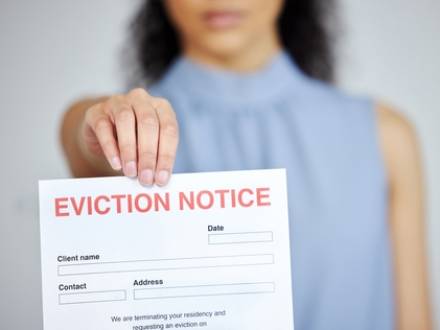 Governor JB Pritzker recently signed an Illinois bill prohibiting landlords from retaliating against tenants in the form of landlord evictions. Landlords may not terminate a lease, increase the monthly rent, threaten a lawsuit, or decrease tenants' services only because the tenant complained. A landlord may also not refuse to renew a lease after a tenant complains about a code violation or takes the issue to his or her elected leaders.
Governor JB Pritzker recently signed an Illinois bill prohibiting landlords from retaliating against tenants in the form of landlord evictions. Landlords may not terminate a lease, increase the monthly rent, threaten a lawsuit, or decrease tenants' services only because the tenant complained. A landlord may also not refuse to renew a lease after a tenant complains about a code violation or takes the issue to his or her elected leaders.
Although the goal of the new law – which goes into effect on January 1 – is meant to ensure rentals are properly maintained, it may end up having a negative effect on landlords and renters alike. The bill could inadvertently force small landlords to sell to big corporations who are likely to be even less concerned about tenants’ rights, and it could drive up rental costs for tenants as well.
If you are an Illinois landlord concerned about the effect this new law may have on your rentals, speaking to an experienced Naperville, IL landlord eviction attorney can answer any questions you may have. When you choose Appelman Law LLC, our legal team can help you do what is sometimes necessary regarding evicting a tenant.
Poor Implementation of New Illinois Law Leaves Many Locked Up
 A new law in Illinois (Public Act 103-0330) went into effect on January 1, 2024, altering the Illinois Unified Code of Corrections. Under this law, the Department of Corrections must recalculate prisoner sentencing credits awarded prior to July 1, 2021 (Certain violent crimes are excluded under the Act). The credits for completion of eligible educational programs, work-release programs, substance abuse programs, and correctional industry assignments could potentially knock months or years off a sentence.
A new law in Illinois (Public Act 103-0330) went into effect on January 1, 2024, altering the Illinois Unified Code of Corrections. Under this law, the Department of Corrections must recalculate prisoner sentencing credits awarded prior to July 1, 2021 (Certain violent crimes are excluded under the Act). The credits for completion of eligible educational programs, work-release programs, substance abuse programs, and correctional industry assignments could potentially knock months or years off a sentence.
A criminal defense attorney from Appelman Law LLC can help those entitled to a recalculation of sentencing credits who have yet to receive those credits. It is necessary to have a knowledgeable Naperville, IL criminal defense lawyer who can aggressively pursue your rights and ensure you receive the sentencing credits you are entitled to. Unfortunately, you may not receive your credit until a legal professional gets involved.
What Can Raise Your Blood Alcohol Level Besides Alcohol?
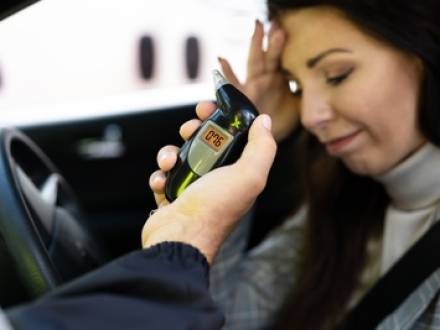 The first device meant to provide a visual indication of intoxication levels was introduced in 1954 and was called the "Drunkometer." Since then, breathalyzer technology has made significant advancements, making the devices quicker, more user-friendly, and generally more accurate. Even so, these devices still have a margin of error that, in some cases, can result in a person who is not impaired being convicted of DUI.
The first device meant to provide a visual indication of intoxication levels was introduced in 1954 and was called the "Drunkometer." Since then, breathalyzer technology has made significant advancements, making the devices quicker, more user-friendly, and generally more accurate. Even so, these devices still have a margin of error that, in some cases, can result in a person who is not impaired being convicted of DUI.
An individual’s lung capacity, body temperature, and rate of alcohol metabolism can impact the concentration of alcohol in the breath. Add to that the timing of the test, as testing too early can result in inaccurately high readings due to residual mouth alcohol. Other variables include medical conditions and substances other than alcohol in the breath that may be falsely detected as alcohol by breathalyzer machines.
Why You Need a Lawyer to Evict a Tenant
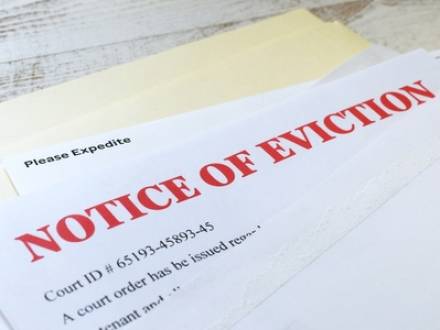 Evictions might seem like a very straightforward legal process. You tell the court that your tenant has stopped paying rent, has an unauthorized pet, or is disturbing the neighbors, and the court signs off on having the county sheriff evict him - or so you would think. However, evictions can become much more complicated than that. Your tenant might deny your accusations or get his own lawyer to help him resist the eviction or make counterclaims. If your eviction proceeding gets messy, it is best for you to be already represented by a well-qualified DuPage County landlord evictions attorney.
Evictions might seem like a very straightforward legal process. You tell the court that your tenant has stopped paying rent, has an unauthorized pet, or is disturbing the neighbors, and the court signs off on having the county sheriff evict him - or so you would think. However, evictions can become much more complicated than that. Your tenant might deny your accusations or get his own lawyer to help him resist the eviction or make counterclaims. If your eviction proceeding gets messy, it is best for you to be already represented by a well-qualified DuPage County landlord evictions attorney.
How an Attorney Can Help Landlords With Eviction
Reasons you want legal representation when you are evicting a tenant include:
- Preparing to recover for damages to the unit - Tenants who are about to get evicted tend to stop caring about whether their unit gets damaged, or may even intentionally cause damages in retaliation. You may need to quickly file a claim to recover money for damages to your unit once the eviction is complete.
Can I Face Criminal Charges for Distributing Prescription Drugs?
 Prescription drug abuse has become a serious concern in the United States, and Illinois is no exception. The distribution of prescription drugs without proper authorization can lead to criminal charges and serious penalties. Understanding the laws surrounding prescription drug distribution and the circumstances under which doctors, pharmacists, or patients may face drug charges is crucial for anyone who has been accused of these offenses. An experienced attorney can help determine the best defense strategies to use in these situations. At Appelman Law LLC, we can provide effective legal representation while protecting the rights of people facing accusations of distributing prescription drugs.
Prescription drug abuse has become a serious concern in the United States, and Illinois is no exception. The distribution of prescription drugs without proper authorization can lead to criminal charges and serious penalties. Understanding the laws surrounding prescription drug distribution and the circumstances under which doctors, pharmacists, or patients may face drug charges is crucial for anyone who has been accused of these offenses. An experienced attorney can help determine the best defense strategies to use in these situations. At Appelman Law LLC, we can provide effective legal representation while protecting the rights of people facing accusations of distributing prescription drugs.
Prescription Drug Distribution Laws in Illinois
Prescription drugs are classified as controlled substances under Illinois law. They are regulated to prevent abuse and ensure they are used only for legitimate medical purposes. The Illinois Controlled Substances Act addresses the illegal distribution of these drugs, outlining specific penalties for violations.





